Haven in the hills: Two sisters set up an organic resort to help the local community
Kanika and Kushika Sharma set up Dyo - the Organic Village Resort in Mukteshwar, Uttarakhand, in 2015, and are bringing luxury and nature on to the same table by encouraging locals to adopt organic farming methods
The temperature’s rising across India, and we’re closing in on the season when families want to retreat to the hills to beat the heat. Be it Mussoorie or Srinagar, hill stations are perennially crowded.
Time perhaps to make your way to Mukteshwar, in the serene Kumaon hills and just 51 km away from Nainital. Here, sisters Kanika Sharma, 31, and Kushika Sharma, 29, have set up the perfect getaway that combines a luxurious lifestyle with organic food and promises to recharge you completely.
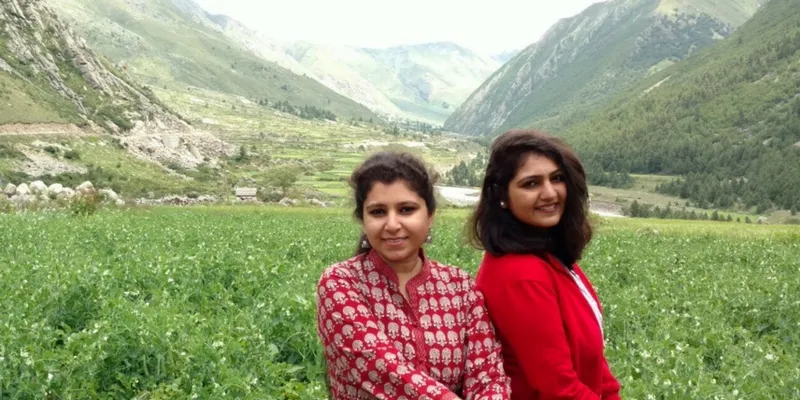
Dyo- the Organic Village Resort was launched in 2015. Dyo is a Sanskrit word that means “heaven”. This resort is literally a heaven – it’s set amid a fruit orchid on a hill, spans a vast landscape of 25 acres, and offers a view of the majestic Himalayas. Apart from bringing guests closer to nature visually, the resort also provides guests with an opportunity to go natural when it comes to food as it is into organic farming and hard-selling the farm-to-table concept.
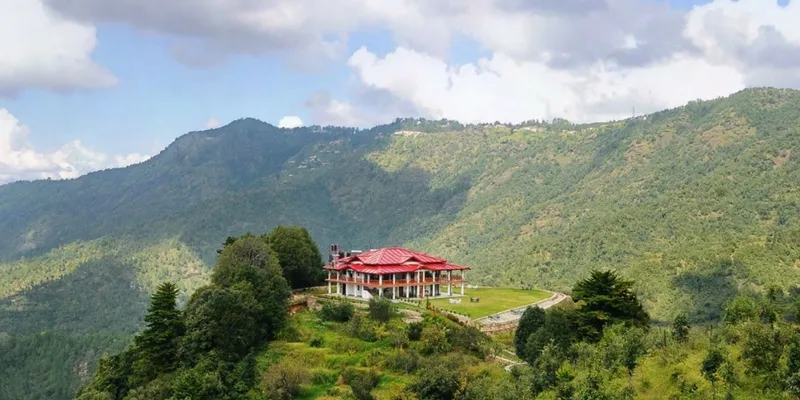
Going back to the roots
The Sharma sisters drew inspiration from their father who also ran a hotel. Kushika says their father’s dream and his love for nature had an influence on them.
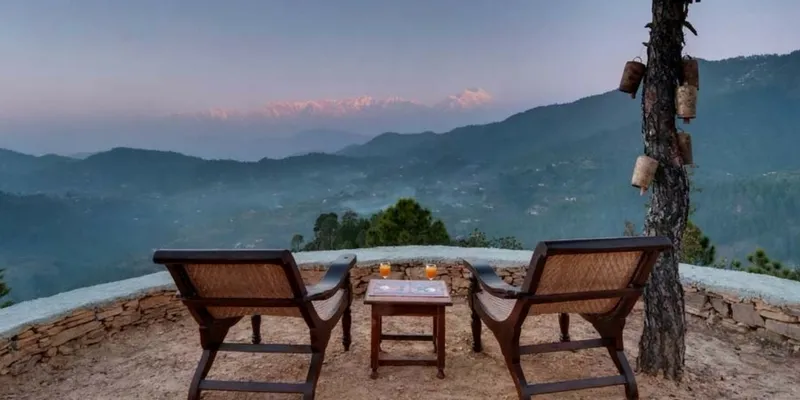
Growing up in the misty hills of Nainital, Kanika and Kushika were very close to Mother Nature. But after they grew up, they set out in pursuit of different careers., Kushika went to study at the University of Petroleum and Energy Studies, Dehradun, with an MBA in Supply Chain Management. She went on to join as a senior research analyst with an MNC for four years. Kanika, meanwhile, completed a post-graduation course in human rights from Jamia Millia Islamia, got her scholarship for a course in entrepreneurship at ISB Hyderabad, and worked with various NGOs.
“Working in a metro, we both felt a sense of dissatisfaction,” Kushika says. She adds,
“I didn’t enjoy the work in the MNC and used to come back to Nainital now and then. Here, in the hills, we saw a huge problem of migration on a large scale as people were moving to the metros for employment opportunities, leaving behind their land and their home as farming did not allow them to enough.”
Why an organic resort?
Feeling the need to help their community, the two sisters left their high-paying jobs and came to Mukteshwar to set up a resort on their ancestral land.
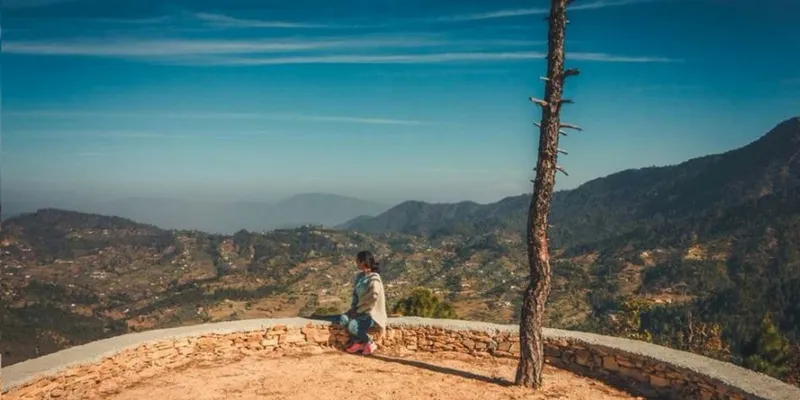
Kanika says,
“This property was given to a local farmer on a lease. Our generation does not care about how organic farming is done or farming in general, even though they easily order organic food online.”
Seeing a wave of organic food and products in the country, the sisters thought of bringing in luxury and organic on the same table.
Kushika highlights that they researched a lot about organic farming online.
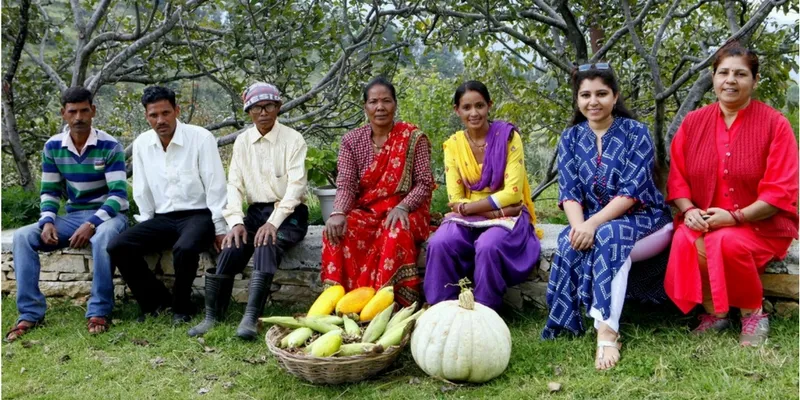
“We went to different states in the country and learned about different techniques of farming. For example, we travelled to Ahmedabad for a camp by Subhash Palekar on ‘zero-farming’ at the end of 2015. Last month, we went to Himachal Pradesh to learn about apple farming techniques and bring the knowledge to farms here in Uttarakhand. We are still in the process of learning.”
Busting the hype about organic products and vegetables, Kanika says it was not easy to convince farmers to switch organic farming as it is very expensive and the supply chain for organic food needs to be different.
"Organic vegetables tend to be picked up from a normal mandi with the inorganic product at the same price. Here, the farmer loses. Even if a big distribution chain takes the organic product from the farmer and the consumer pays a high price for it, the farmer still does not get a good share of the profit as the margin is kept with distribution chain,” she adds.
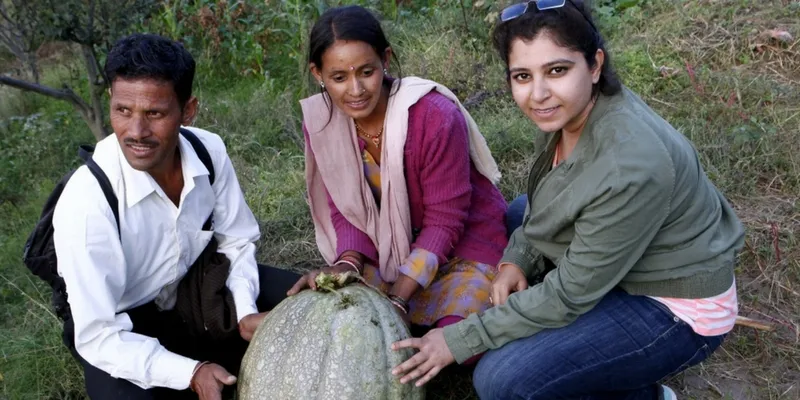
Currently, both sisters are engaged with 200 farmers in Mukteshwar and are also building an organic farmer producer company in the region with certified organic farmers. They aim to turn Mukeshtwar into an organic hotspot in the next four to five years.
Kanika says they are in talks with various retail chain distributors and are trying to involve corporates in organic farming through CSR activities.
Farming is not easy
Kushika says they are trying to sustain farming in the region through tourism.
“The concept of farm to table is quite popular in the western countries, so we thought to bring it to our resort. We offer options like pick your own vegetable or fruits, and give them to the chef to cook. Through this, the guests enjoy picking their local food in the farms, it helps to boost the farming economy,” she adds.
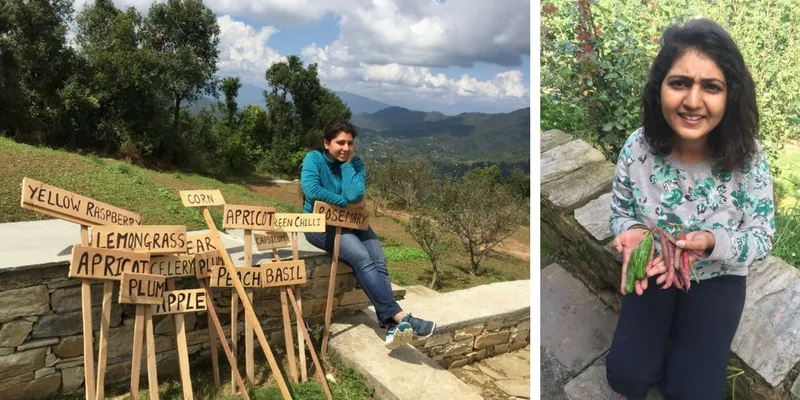
But setting up the resort was not easy for the sisters. A major challenge they faced was sourcing everything from outside. The Sharma sisters faced a fund crunch and ultimately took a loan.
However, the most difficult part was introducing organic farming and hospitality to local people.
Kanika explains, “Our project involved local people, but here in Mukteshwar, which is a small town, people had a mindset that hospitality was not a good industry. Many of them were also sceptical of taking up organic farming as it was expensive.”
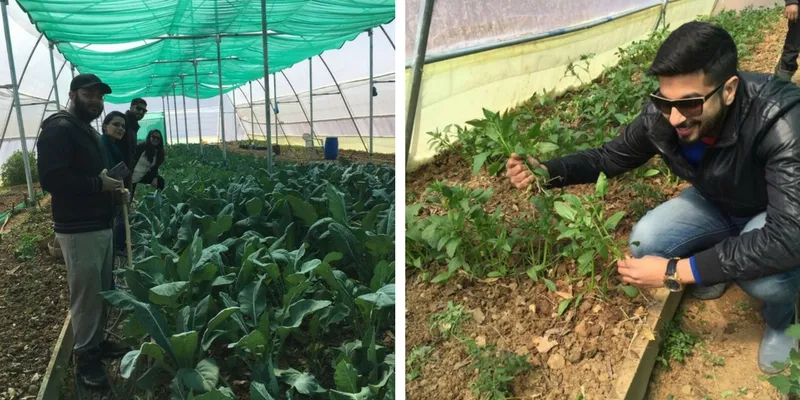
“Being a woman entrepreneur in a small town or village is quite difficult. If you are in working in a MNC and somebody is not working well with you, one has the right to get that person off the team. But in a village, people have a different mindset and prejudices. And it’s very hard for them to take orders from a woman who is half their age. It took us a lot of time to convince people as we had to break barriers of gender, caste, and generation,” Kushika adds.
A stereotypical question the sisters often face is about marriage. “Sometimes, even the guests ask ‘are you running the place with your husband’?” But this is not an issue at all,” Kanika says.
“My parents were a great support and always encouraged us to achieve whatever we thought of,” she adds.
Blending nature and luxury
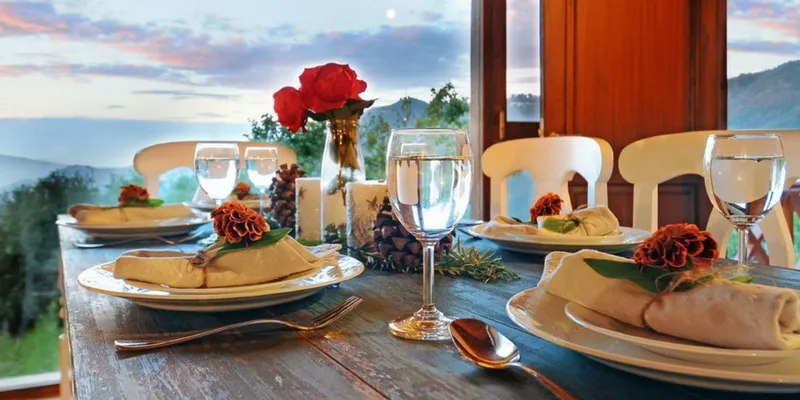
Dyo has only five rooms spread across 25 acres; they are named after the elements of the universe: Urvi, Era, Vria, Arka, and Vyuman.
Explaining why they have just five rooms in the resort, Kushika says:
“We have only kept five luxury rooms as we are more attached to farming. We could have increased the number of rooms as we have a lot of land on the property. But that is not our USP; we are mainly focused on farming and the community.”
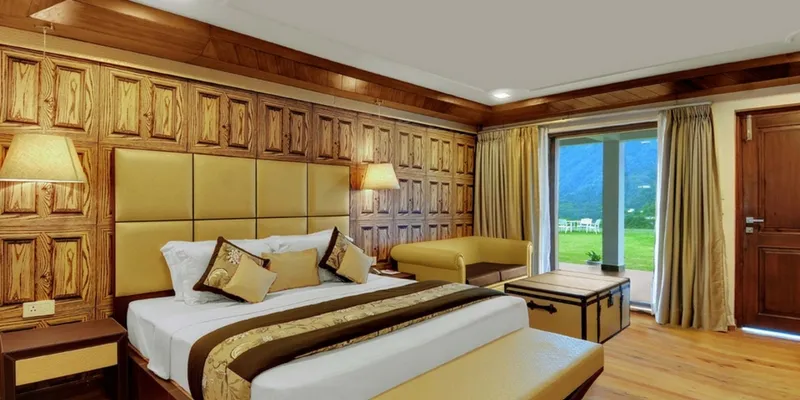
The resort is eco-friendly and sustainable with rain-water harvesting, a sewage treatment plant, cow dung manure, and solar panels.
Kushika claims that they save four lakh litres of water every year through rain-water harvesting.
“We don’t waste a single drop of water here,” she says.
The tariff per night ranges between Rs 10,000 and Rs 12,000, and includes meals, activities like pick your own fruit or vegetable, learning about farming, village walk, and a jungle trek. To help guests know more about the local community, the resort serves a Kumaoni Thali for lunch along with other popular cuisines.

The resort is staffed by 25 people, all locals trained in hospitality.
Kushika says, “ People come from different places, often with their children, and explain to them about farming and nature. Many guests have extended their stays as they find a sense of contentment here.”
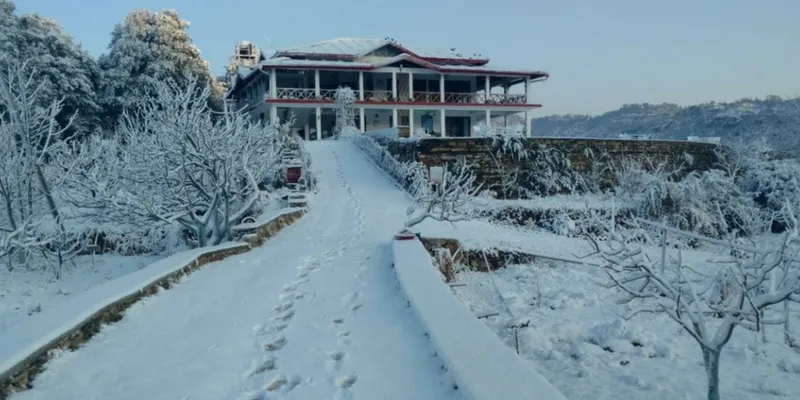
Truly, a heavenly haven in the hills.







